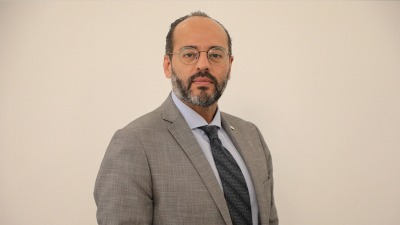"Akhbar al-Yawm" agency
Fifty Years Since the Lebanese Civil War...A Memory Not to Be Overlooked
Serge Dagher warns via "Akhbar Al-Yawm" against the repetition of chaos...
The fiftieth anniversary of the Lebanese Civil War is a milestone that demands careful reflection, particularly for the Kataeb Party, which has chosen Saturday, April 12, to mark the "Launch of the Lebanese Resistance." This event will provide an important opportunity to revisit the historical context that led to the war, offering insights into Lebanon's present challenges and future direction, while drawing lessons from the nation's past.

Serge Dagher, the Secretary-General of the Kataeb Party, provided via the "Akhbar al-Yawm" agency an in-depth perspective on the party's role in the Lebanese resistance, highlighting that the Kataeb formed the core of the Lebanese resistance starting in 1969. He emphasized the importance of clarifying the circumstances of that era, as there are misconceptions that the war began merely with the "passage of a bus through Ain el-Rummaneh". However, Dagher asserts that the causes of the conflict are far deeper, rooted in a broader historical context that began in 1969 with the Palestinian expansion and efforts to alter Lebanon's identity, aiming to establish a Palestinian state at the expense of Lebanon's sovereignty. The inability of the Lebanese state to confront this challenge ultimately led to the necessity for the Kataeb, to take a stand in defense of Lebanon's true identity and territorial integrity.
"Understanding the historical context is crucial", Dagher explained. He pointed out that the upcoming event in ten days will revisit the events leading to the war, particularly in Ain el-Rummaneh, a location symbolic of the war's initial spark. He clarified that the commemoration was not intended to glorify the war but rather to remind the Lebanese people that the resistance fought to preserve Lebanon's existence, sovereignty, and diversity.
In discussing the underlying causes of the war, Dagher highlighted key factors such as the proliferation of weapons, foreign allegiances, external loyalties, and attempts to undermine Lebanon’s sovereignty. He pointed out that this pattern has repeated itself over the years: just as Palestinians once sought to control Lebanon, so did Syrians and Iranians. The country transitioned from Palestinian militias to those backed by Syrian forces, and eventually, to Hezbollah, supported by Iran. Dagher warned against the potential recurrence of such a scenario in the future, stressing the importance of safeguarding Lebanon’s independence and sovereignty.
Dagher also linked the commemoration to remarks made by the Kataeb Party leader, MP Samy Gemayel, during the parliamentary discussion on the government's policy statement. Gemayel had emphasized the necessity of "frankness and reconciliation" as part of the national dialogue.
When asked whether this implied that some factions were advocating for Lebanon not to continue as a unified nation, Dagher responded, "Gemayel has called for the writing of a shared story, but this cannot be done without acknowledging and respecting one another. Equality must prevail, and everyone must be placed under the cover of the state". He emphasized that the "shared story" must be built on the principles of respect and equality for all Lebanese citizens. Furthermore, this vision is being proposed for the entire country, as the decision to belong and live together in peace is one that must be collectively made.
Dagher reminded that the Kataeb Party has always extended a hand for dialogue and reconciliation, but that this gesture must be reciprocated. "Others must also make the same decision: to commit solely to Lebanon, safeguard its sovereignty, and support the exclusive control of arms by the state."
He concluded by stressing the importance of reinforcing these principles daily, as they are the foundation for building a unified state that protects the rights of all citizens. Dagher further noted that the Kataeb leader’s speech on April 12 would reflect this vision, moving from the historical context to address Lebanon's present challenges and its future path.
Akhbar Al Yawm